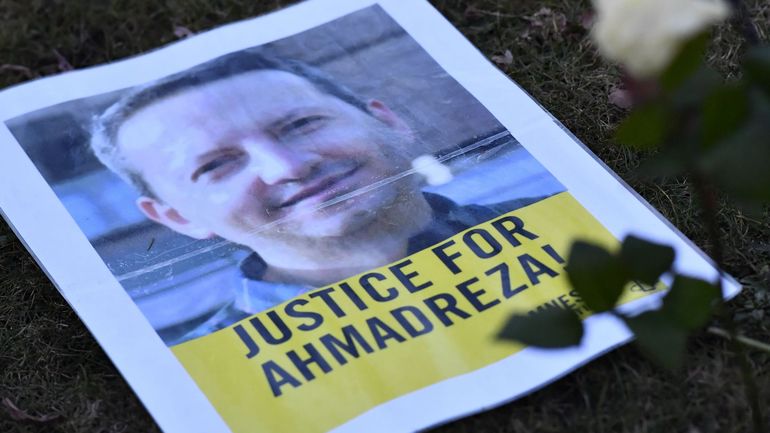Following reports from the Iranian ISNA news agency on Wednesday about the planned execution of Swedish-Iranian VUB guest lecturer Ahmadreza Djalali (49), Amnesty International is increasing calls for his release.
Djalali, who was sentenced to death in 2017, would reportedly be executed at the end of the Iranian month of Ordibehesht, which corresponds to 21 May.
Iran also linked Djalali's execution to Hamid Noury, an Iranian official on trial in Sweden for his alleged role in the mass executions of Iranian political prisoners in 1988.
"This news is extremely worrying and once again a heavy blow to the family," said Wies De Graeve, director of Amnesty International Flanders in a press release, adding that Iran's actions are "unpredictable and inadmissible."
'Stop this barbarity'
De Graeve stressed that "it is literally of vital importance" that countries like Belgium and Sweden put (more) pressure on the Iranian authorities to prevent the execution and call for the release of Djalali.
"We call on Iranian leaders to stop this barbarity," said interim VUB rector Jan Danckaert. "We ask the whole world to continue to pressure Iran to stop the degrading and unjust treatment of Djalali."
He has been imprisoned "arbitrarily, unjustly and in shameful conditions" for more than six years after being accused of espionage and sentenced to death for "spreading corruption on earth". Amnesty International stated that his trial was "manifestly unfair". Djalali has been tortured and his health is poor.
Related News
- VUB guest lecturer to be executed in Iran by 21 May
- Brussels universities call for government action over lecturer jailed in Iran
- Conviction of Iranian diplomat raises concerns for VUB professor
"It shows a far-reaching disregard for humanity if you repeatedly use prisoners with dual nationality as currency, and threaten them with execution in order to put pressure on other countries," said Professor Gerlant van Berlaer, Djalali's friend and colleague.
Djalali specialises in disaster medicine and was arrested and charged with espionage in April 2016 during a working visit to Iran. For the first ten days, no one knew where he was being held.
Drawing international attention
Amnesty International and the VUB call for the fate of Djalali to be widely publicised to draw as much (international) attention as possible to the case.
An Amnesty International petition to demand his release has already been signed more than 132,000 times in Belgium.

